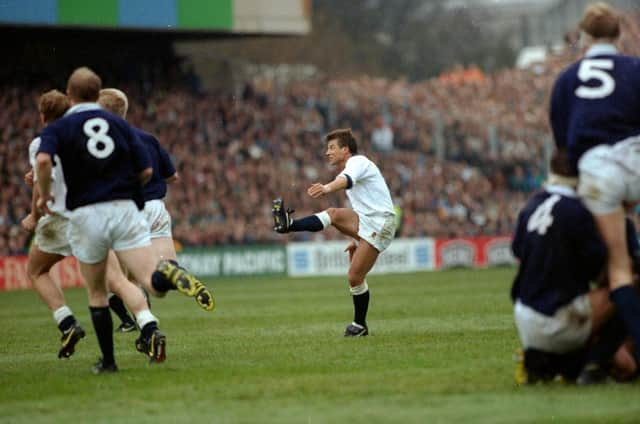Scotland's World Cup chances of 1991 are likely to be our best - we still need that shock result


The tournament was jointly hosted by England, Scotland, Ireland and Wales. All Scotland’s pool matches were to be played at Murrayfield, where one quarter-final and one semi-final would also be staged. So we had a chance of reaching the Twickenham final without leaving Edinburgh, where we hadn’t lost since Australia won there in November 1988.
Almost all the players who had won the Five Nations Grand Slam in 1990 were still playing and only hooker Kenny Milne and lock Damian Cronin of the 1990 champions were missing from what proved to be the key match of the pool stage against Ireland. Cronin’s place was now taken by the 20-year-old Doddie Weir.
Advertisement
Hide AdAdvertisement
Hide AdThe Ireland match followed comfortable wins against Japan and Zimbabwe, and proved to be a close-run thing. It was a fine game, a bit nerve-rattling, and not only the Irish thought we were lucky to have won. If the game had been policed as matches are now, we would probably have lost. Finlay Calder took out the Irish full-back Jim Staples as he fielded a high kick with a tackle which seemed to many (every Irish fans certainly) a stiff-armed blow to the head. I remember saying it was just a wee bit mistimed, Staples coming down rather than being at the top of his jump when Calder made contact. These days it would be a red card, no question. A few minutes later, Staples, still a bit groggy, dropped a high kick, Tony Stanger scooped up the ball and passed to young Graham Shiel who scored only a few minutes after he had replaced an injured Craig Chalmers. We won 24-13 to top the pool.
It had been expected that the quarter-final would be against Wales, but Wales had lost to Western Samoa, a match that provoked weeping and wailing in the valleys and one fine comment – “just as well, boyo, we weren’t playing the whole of Samoa”. As it happened, Western Samoa were tough opponents but Scotland won quite comfortably, with two tries from John Jeffrey and one from Tony Stanger – what a good try-scoring wing he was.
And so England came to Murrayfield, their first visit since the epic Grand Slam clash. Excitement ran understandably high, even those of us who thought that the gods of rugby had been with us in March 1990 and might not be with us again, found optimism rising as the day approached. But England played in a manner to supress emotions, dominating the game by means of their powerful forwards while that most astute and skilful of fly-halves, the often underrated Rob Andrew, controlled proceedings. There were no tries. For any neutral it must have been a dull game, for English fans a satisfying one, for Scots – no “must “ about it – a frustrating one. It was always close and we were never out of it, though never, as I recollect, looking like scoring a try. Yet at 6-6 in the last quarter we were awarded a penalty in front of the posts. Sadly, Gavin Hastings missed it. Later we learned that he was a bit concussed; this was of course long before the days of HIAs. Eighteen months previously Craig Chalmers has been entrusted with medium-range kicks at goal, but not this time. Then Andrew dropped a goal: England 9, Scotland 6.
So instead of being off to Twickenham for the final, we went to Cardiff for the third/fourth play-off match against New Zealand who had surprisingly lost to Australia in the other semi-final. It’s a game that nobody really wants – or so it is said – but actually this one turned out to be rather good. even though there was only one try, late in the game when the All Blacks counter-attacked from their own 22.
So there it was. We had a good chance of at least reaching the final and even of winning the World Cup. It is still the case that we haven’t ever in the history of the RWC yet beaten a team against whom we were expected to lose. Perhaps this year against South Africa or Ireland ... perhaps.
Australia won the final. I didn’t watch. I went to a funeral instead.